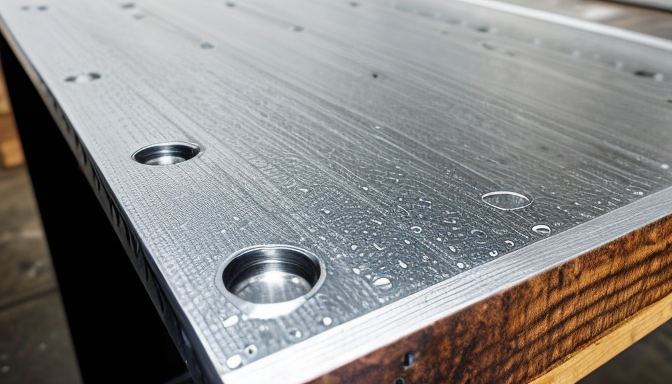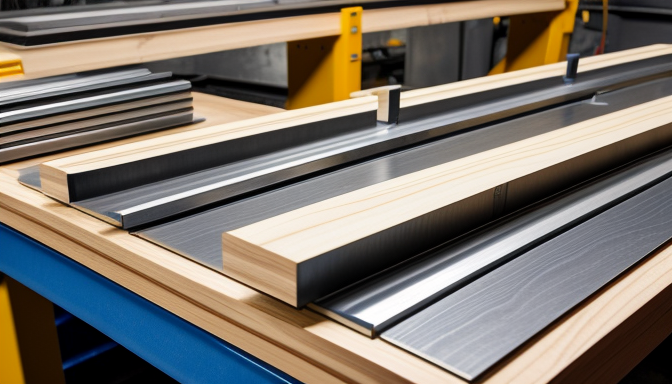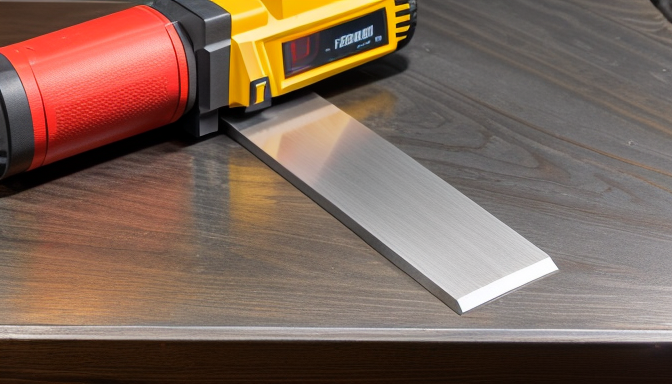When it comes to construction and manufacturing, expanded steel sheets are often the unsung heroes. They provide strength and versatility, making them essential in various industries. Imagine a sturdy mesh that can support weight yet allows air and light to pass through. That’s the beauty of expanded steel sheets. They start as flat sheets of metal, which are then cut and stretched to create a diamond pattern. This process not only enhances their strength but also makes them lighter than solid metal sheets.
These sheets are more than just a pretty face. They are used in a wide range of applications, from industrial flooring to architectural features. Have you ever walked on a metal grate? That’s likely expanded steel at work, providing a safe surface while allowing drainage. The unique design also makes them ideal for use in fencing, security barriers, and even decorative elements in buildings. With their ability to combine functionality with aesthetics, expanded steel sheets are a go-to choice for many projects.
But what about the specifics? You might be wondering about their price, weight, and properties. Understanding these factors can help you make informed decisions about your projects. Whether you’re a contractor, an architect, or a DIY enthusiast, knowing the ins and outs of expanded steel sheets is crucial. They come in various sizes and thicknesses, which can affect their cost and usability. So, let’s dive deeper into the world of expanded steel sheets and explore what makes them tick.
Expanded Steel Sheet Price
When it comes to expanded steel sheets, understanding the price is key. Why? Because it can make or break your budget in construction and manufacturing projects. The price of these sheets isn’t just a random number; it’s influenced by various factors. First, consider the material costs. Steel prices fluctuate based on market demand and supply. If the demand is high, expect prices to rise. Conversely, when demand dips, prices can drop.
Another important factor is the sheet thickness. Thicker sheets generally cost more. This is due to the increased amount of material used, which also affects their overall weight. And speaking of weight, heavier sheets often incur higher shipping costs. So, if you’re ordering in bulk, keep that in mind!
Moreover, manufacturing processes can impact prices as well. Different methods of expanding steel can lead to variations in cost. For instance, sheets that are processed with additional treatments, like galvanizing, may cost more upfront but offer better durability in the long run. So, is it worth the extra expense? It often is, especially if you’re looking for longevity and resistance to corrosion.
Now, let’s talk about market trends. Prices can vary significantly from one supplier to another. It’s essential to shop around and compare quotes. You might find that some suppliers offer better deals, especially if you’re purchasing in large quantities. Here’s a quick look at some average price ranges:
| Sheet Thickness (inches) | Price per Square Foot (USD) |
|---|---|
| 0.025 | $3.00 |
| 0.050 | $4.50 |
| 0.075 | $6.00 |
| 0.100 | $8.00 |
As you can see, the thicker the sheet, the higher the price. But remember, this is just a ballpark figure. Prices can vary based on location and supplier. Always check for the latest prices before making a decision.
In conclusion, understanding the price of expanded steel sheets is crucial for your project. By considering material costs, thickness, manufacturing processes, and market trends, you can make an informed choice. So, next time you’re budgeting for a project, don’t forget to factor in these elements. It might just save you a few bucks!

Expanded Steel Sheet Weight
The weight of expanded steel sheets is an important factor that influences their usability in various applications. It’s not just about heft; understanding the weight can help you make informed decisions in construction and manufacturing projects. When you think about it, weight affects everything—from transportation to installation. If you choose a sheet that’s too heavy for your project, it could lead to complications down the line.
So, how do we determine the weight of these sheets? Well, it largely depends on the material and thickness. For instance, a standard sheet made from mild steel will weigh differently than one made from stainless steel. Here’s a quick breakdown:
| Material | Thickness (inches) | Weight (lbs per sq ft) |
|---|---|---|
| Mild Steel | 1/8 | 1.67 |
| Stainless Steel | 1/8 | 2.00 |
| Aluminum | 1/8 | 0.80 |
As you can see, the material choice significantly impacts the weight. For example, aluminum is much lighter than steel, making it an attractive option for projects where weight is a concern. But remember, lighter doesn’t always mean better. You need to consider the strength and durability of the material as well.
When handling expanded steel sheets, it’s essential to consider not just the weight but also how it will affect the overall structure. A heavier sheet may require additional support, which could increase costs. Think about it—if you’re building a structure, you wouldn’t want to compromise on safety just to save a few bucks on lighter materials.
In my experience, I’ve often seen projects go awry due to underestimating the weight of the materials used. A client once insisted on using a heavy gauge steel for a lightweight frame, thinking it would add strength. But in reality, it caused the entire structure to sag. Lesson learned: always consider the weight in relation to the application.
In conclusion, understanding the weight of expanded steel sheets is crucial. It affects not only the handling and installation but also the long-term viability of your project. So, before you make a purchase, weigh your options—literally and figuratively!
Expanded Steel Sheet Properties
When it comes to expanded steel sheets, their properties are what truly set them apart. Think of these sheets as the Swiss Army knife of materials. They are not just flat pieces of metal; they are engineered to be versatile, strong, and durable. One of the most remarkable characteristics of expanded steel is its strength-to-weight ratio. This means you get a tough material that doesn’t weigh a ton, making it easier to handle and install.
Another key property is durability. Expanded steel sheets are resistant to corrosion and wear, which makes them ideal for both indoor and outdoor applications. Whether it’s a construction site exposed to the elements or a decorative feature in a cozy café, these sheets can take a beating and still look good. They’re like that friend who can handle any situation without breaking a sweat.
Flexibility is also a major advantage. Expanded steel can be easily cut and shaped to fit different designs. This adaptability allows architects and engineers to get creative. Imagine needing a custom grill for a building’s ventilation system. With expanded steel, you can create unique shapes without compromising strength.
Let’s not forget about weight. The lightweight nature of expanded steel sheets makes them easier to transport and install. This can lead to significant savings in labor costs and time. Here’s a quick overview of how weight impacts usability:
| Property | Impact |
|---|---|
| Lightweight | Easy to transport and install |
| Strong | Supports heavy loads without bending |
| Flexible | Can be shaped for various applications |
In terms of aesthetics, expanded steel sheets come in various patterns and finishes. This means they can be used not just for their functional properties but also for their visual appeal. Whether you want a modern look or something more industrial, there’s an expanded steel sheet that fits the bill.
In conclusion, the properties of expanded steel sheets make them a popular choice across many industries. From construction to design, their strength, durability, flexibility, and lightweight nature open up a world of possibilities. So, the next time you see an expanded steel sheet, remember: it’s not just metal; it’s a powerhouse of potential!

Expanded Steel Sheet Sizes
When it comes to expanded steel sheets, size truly matters. Different projects require different dimensions, and knowing what’s available can help you make the right choice. Typically, expanded steel sheets come in a variety of sizes, which can cater to a multitude of applications. Whether you’re working on construction, manufacturing, or even artistic projects, the right size can make all the difference.
Standard sizes often range from 4 feet by 8 feet to 5 feet by 10 feet. However, custom sizes are also available upon request. This flexibility allows for tailored solutions that fit specific project needs. Imagine trying to fit a square peg into a round hole; it just doesn’t work. The same goes for using the wrong size of expanded steel sheet.
Here’s a quick look at some common sizes:
| Size (ft) | Thickness (in) | Weight (lbs) |
|---|---|---|
| 4 x 8 | 0.063 | 50 |
| 4 x 10 | 0.125 | 75 |
| 5 x 10 | 0.187 | 100 |
Each size has its own weight and thickness, which can significantly affect how you use the material. For instance, a thicker sheet is generally stronger and more durable, making it ideal for heavy-duty applications. On the other hand, a thinner sheet may be easier to handle and cut, perfect for lighter projects.
Don’t forget about the mesh pattern as well! The size of the openings can vary, impacting both the aesthetic and functional aspects of your project. Smaller openings provide more strength and are often used in safety applications, while larger openings can offer better airflow and visibility.
In conclusion, understanding the various sizes of expanded steel sheets can save you time and money. Choosing the right size is like finding the right tool for a job; it can make everything smoother and more efficient. So, before you dive into your next project, take a moment to consider the dimensions you need. It can be a game-changer!
Frequently Asked Questions
- What is an expanded steel sheet?
An expanded steel sheet is a versatile material created by cutting and stretching a flat sheet of steel to form a mesh-like pattern. This unique design provides strength while allowing for airflow and light, making it ideal for various applications.
- How much does expanded steel sheet cost?
The price of expanded steel sheets can vary based on factors such as thickness, size, and market demand. On average, you might expect to pay anywhere from $2 to $10 per square foot. It’s always a good idea to shop around and compare prices from different suppliers!
- What are the common uses of expanded steel sheets?
Expanded steel sheets are widely used in construction, manufacturing, and even art. You’ll find them in safety barriers, walkways, grates, and decorative elements. Their strength and lightweight nature make them a favorite in many industries!
- How do I determine the weight of an expanded steel sheet?
The weight of an expanded steel sheet depends on its thickness and dimensions. A simple way to calculate it is by using the formula: weight area x density. The density of steel is approximately 490 lbs per cubic foot, so keep that in mind when calculating!
- Are expanded steel sheets durable?
Absolutely! Expanded steel sheets are known for their durability and resistance to wear and tear. They can withstand harsh conditions, making them perfect for both indoor and outdoor applications.
- What sizes do expanded steel sheets come in?
Expanded steel sheets are available in a variety of sizes to meet different project needs. Common sizes include 4×8 feet and 3×6 feet, but custom dimensions can also be ordered. Always check with your supplier for specific options!
- Can expanded steel sheets be painted or coated?
Yes, expanded steel sheets can be painted or coated to enhance their appearance or provide additional protection against corrosion. Just make sure to use a suitable primer and paint for metal surfaces to achieve the best results!
